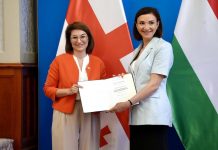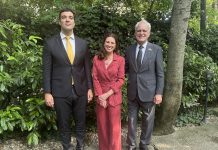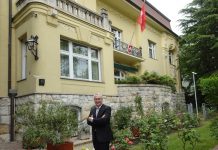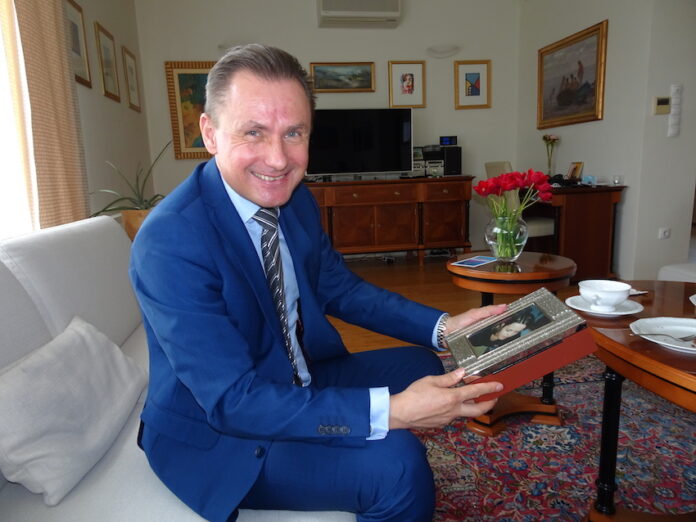Interview with Mr Robert Kokalj, Ph.D, a Prominent Diplomat of the Slovenian Foreign Service
Written by Prof. Lucija Mulej, Ph.D, BUDNJANI d.o.o., Gea College, Slovenia
Dear Mr. Kokalj, You are a distinguished Slovenian diplomat with 27 years of experience as Ambassador in the Middle East and Central Europe. Recently You concluded Your mission in Budapest. Responsible behaviour in the international community is a domain of professionals in diplomacy. How can we focus on realising realistically achievable foreign policy ambitions in the international community, ensuring the balance of the relationships we cultivate with the neighbourhood, the region and the world?
– In the age of post-globalisation, we are witnessing a violent polarisation of the world and the value system in the international community. The complexity of global challenges calibrates the achievability of foreign policy goals.
In my career, I have had the opportunity to get to know countries on different continents, where the ruling political-economic elites use diplomatic toolbox to project their power in order to assert their pragmatic interests in the neighbourhood, region and world.
As a witness to the Arab Spring, I can argue that authoritarian projection of power does not increase prosperity, but ultimately shrinks it.
It is therefore democracy, with its value system based on human rights and the rule of law, that creates the conditions for prosperity and its strengthening, while at the same time providing the necessary guarantees for global security and stability. The latter also represent our central foreign policy ambitions, which we strive to enforce with our partners in the EU, NATO and the UN.
Belonging to the values and goals of the EU and NATO, supporting effective multilateralism, what will be the future focus of the UN, stemming from new power equilibrium between Russia and Ukraine?
– I am deeply concerned about the wide-ranging consequences of Russia’s aggression against Ukraine. We face unprecedented risks of instability, severe economic aftermath and fragmentation of the international community. That is why the EU unity will remain crucial.
Being committed to effective multilateralism, it will be important to strengthen solidarity with partner countries worldwide. Threatening the values of the democratic world and the survival of core democratic values direct the international community, with the UN at its centre, to strengthen its activities in the fight against distorted narratives.
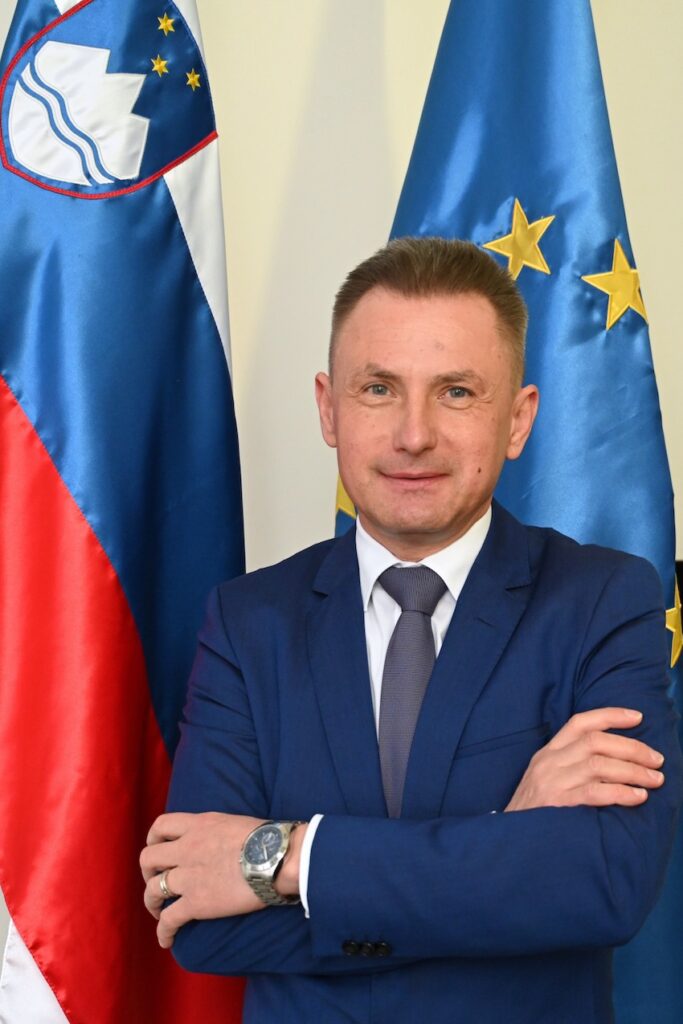
The vulnerability of certain regions of the world has significantly deepened with the war in Ukraine, increasing the possibility of asserting unreliable interpretations of current responsibility for the emerging global situation. For example, some African countries do not share the EU’s interpretation of events surrounding Russia’s aggression against Ukraine.
The future focus of the UN is actually the focus of today, as the war in Ukraine has brought to the surface all major latent global challenges. The era of self-deceit is over. The complex and intertwined challenges of food security, energy supply, climate change, migration and infrastructure connectivity require a coordinated global response and a high degree of consensus among UN Member States.
When it comes to Slovenia’s role and contribution as a member of the EU and NATO, it will continue to act responsibly in the future. In this regard, I would like to emphasise the achievements of the recent Slovenian Presidency to the European Council in the field of water diplomacy, where with my team we successfully negotiated the relevant Council Conclusions.
As an economic diplomat, how would You strengthen the outgoing investments of the Slovenian economy, measuring the impact of economic diplomacy in the internal and external service?
– The mission of economic diplomacy is one of the most important foreign policy activities. In particular, highly export-oriented countries have reorganised their Ministries of Foreign Affairs in such a way that they have placed the tasks of promoting and supporting foreign trade and investments at the forefront of their activities. Namely, many foreign ministers are first and foremost foreign trade ministers. Such a practice is directly related to the understanding that the power of the diplomatic apparatus can make a significant contribution to strengthening the well-being and economic growth of the national economy.
In the role of a senior economic diplomat, which was entrusted to me several times in my career, I was able to open doors to the internationalisation of Slovenian businesses on numerous trade and investment missions, which took place on the side-lines of visits by Slovenian political leaders abroad. Of particular importance in this regard were the results we achieved during such missions in the area of ensuring connectivity in the field of logistics, infrastructure and energy.
I would like to highlight two successful investment cases from my term as Ambassador to the Middle East and later to Hungary. The first refers to the investment of a major Egyptian investor in a Slovenian high-tech smart – electricity metering company, which in this way obtained fresh capital for further development and access to the Middle East markets. The second is an example of collaboration between Slovenian and Hungarian high-tech companies within the test track for electric and autonomous vehicles in Zalaegerszeg. This collaboration proved to be very important, also as a driver for strengthening the Slovenian automotive industry operations in Hungary.
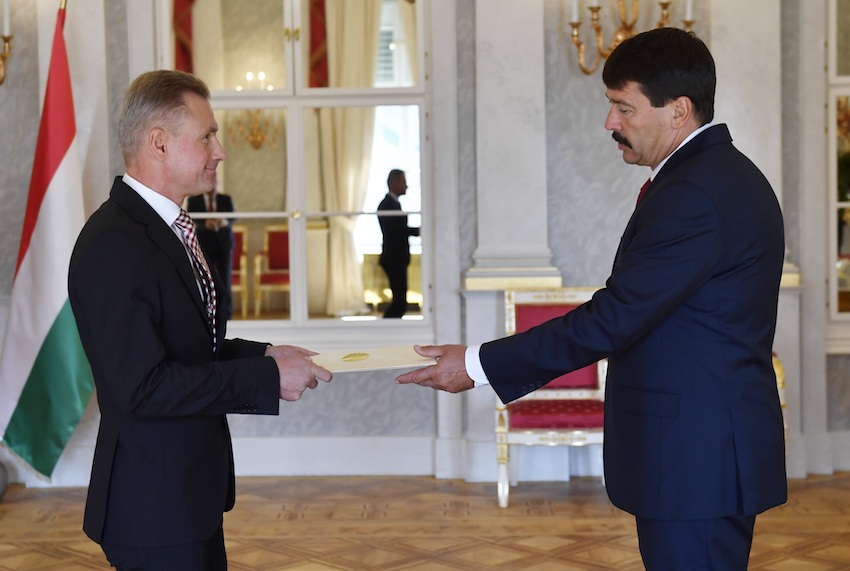

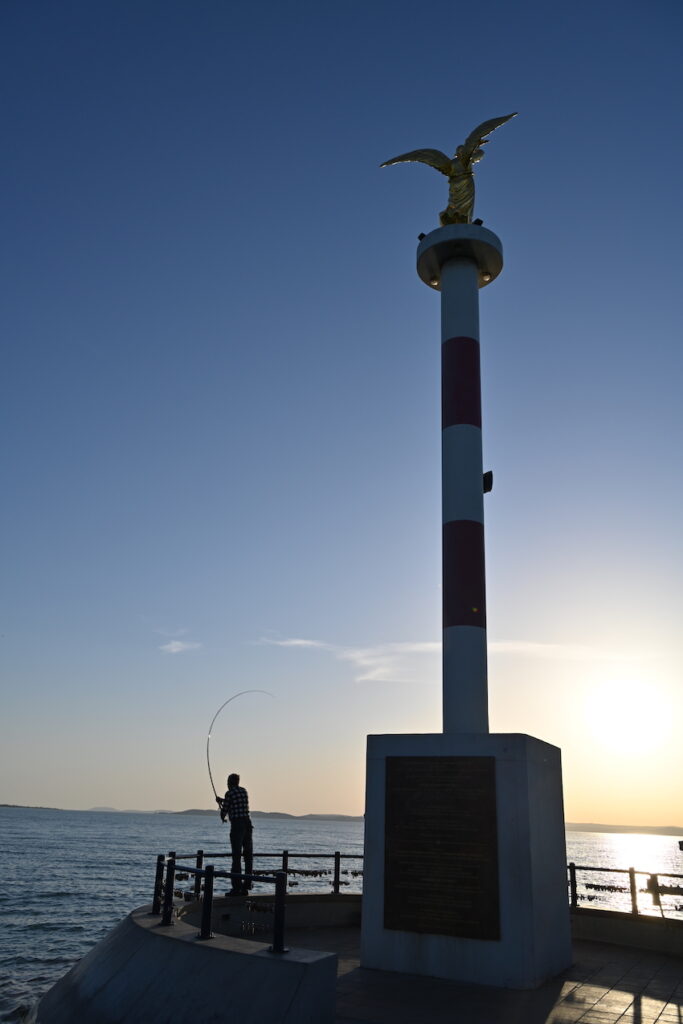

Strengthening the activities of economic diplomacy is possible with the close connection of the Ministry of Foreign Affairs with the National Export and Development Bank, as well as other key institutional stakeholders in the internationalisation of the domestic economy.
How can a diplomat convey democratic governance in the international arena in modern times?
– Amidst different authoritarian practices, it is first necessary to act on our own democratic example. It is essential to maintain and spread the belief that democracy is effective in addressing and solving complex challenges. Therefore, our cooperation with third countries is based on high ethical standards. However, it is pragmatic to seek their implementation through the prism of political reality and the complementarity of interests of the participating actors.
When it comes to values, I emphasise the importance of our humanitarian work. During the turmoil of the Arab Spring, my service in Cairo enable me to carry out projects on the delivery of medicines to Libya and the psychosocial rehabilitation of Libyan youngsters, as well as the physical rehabilitation of Egyptian and Gaza youth injured in protests.
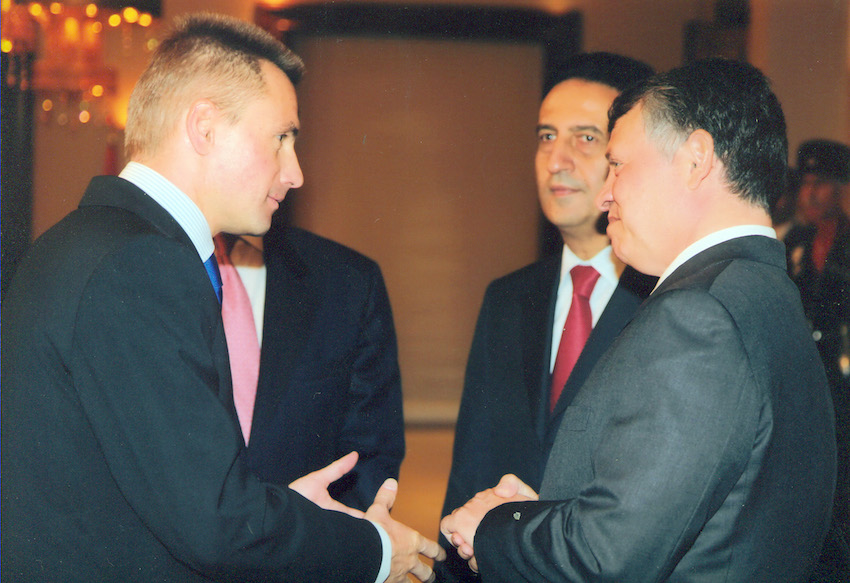

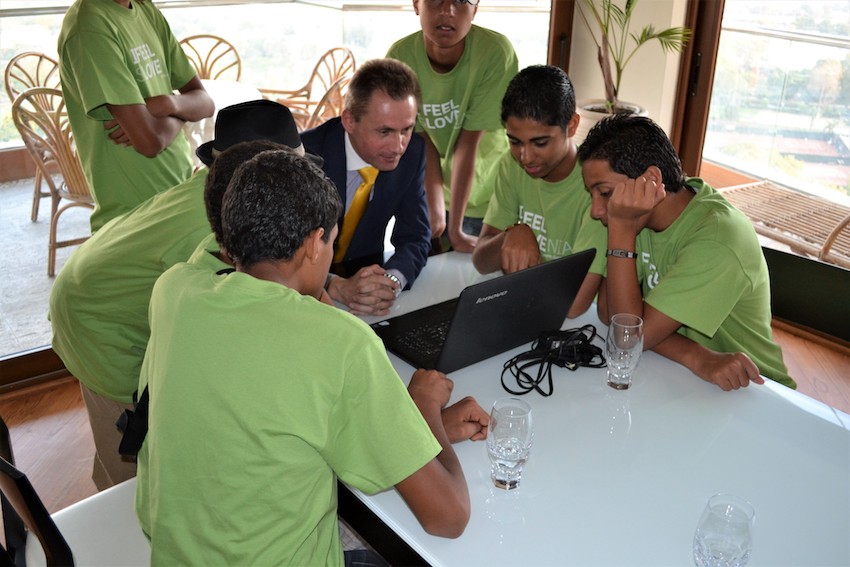

Have we been short-changed on acknowledgement, promotion and protection of human rights whilst fostering economic goals and production e.g., growth?
– Human rights and the pursuit of economic goals are not mutually exclusive. In this context, it would be right to implement economic interests while respecting human rights. This paradigm is gaining recognition internationally, for example in global supply chains. The growing awareness of consumers and businesses about fair trade is followed very quickly by the development of national legislation. We strive to develop such a pattern, which we promote also in less developed countries.
In doing so, my personal experience has taught me that overcoming deep poverty in such environments is a long-term task whereby a developed world can make a crucial contribution. Listening to and understanding the needs of partner countries is key, which as a rule should not automatically be conditioned. The less developed world appreciates many achievements and technological progress of the old continent. Realistically one has to recognise that the implementation of the value system of the democratic world requires time and economic development in partner countries, as well as technology transfer and education.
The social progress of the less developed will be most effectively accomplished by their educated individuals, who will guide their numerous young generation. Empowering youth in our partner countries is key. We have a duty to assist them in this process. After all, it is a matter of mutual partnership benefit.
How can the public support the bespoken plan, strengthening strategic alliances alongside the democratic needs of a world at strife? Climate diplomacy is a big challenge; an active approach to promote green transition and climate neutrality in line with the Green Agreement, transferring domestic technological knowledge to partner countries is today’s core business and ecological innovations.
– We must further develop our climate, energy, transport and digital infrastructure and strengthen our health and education systems. This is even more true when it comes to the needs of our partner countries.
Although the EU is the largest Official Development Assistance donor and a reliable global actor striving for the cohesion of the international community, it has proven that this alone is not fully sufficient to meet the needs of our partner countries.
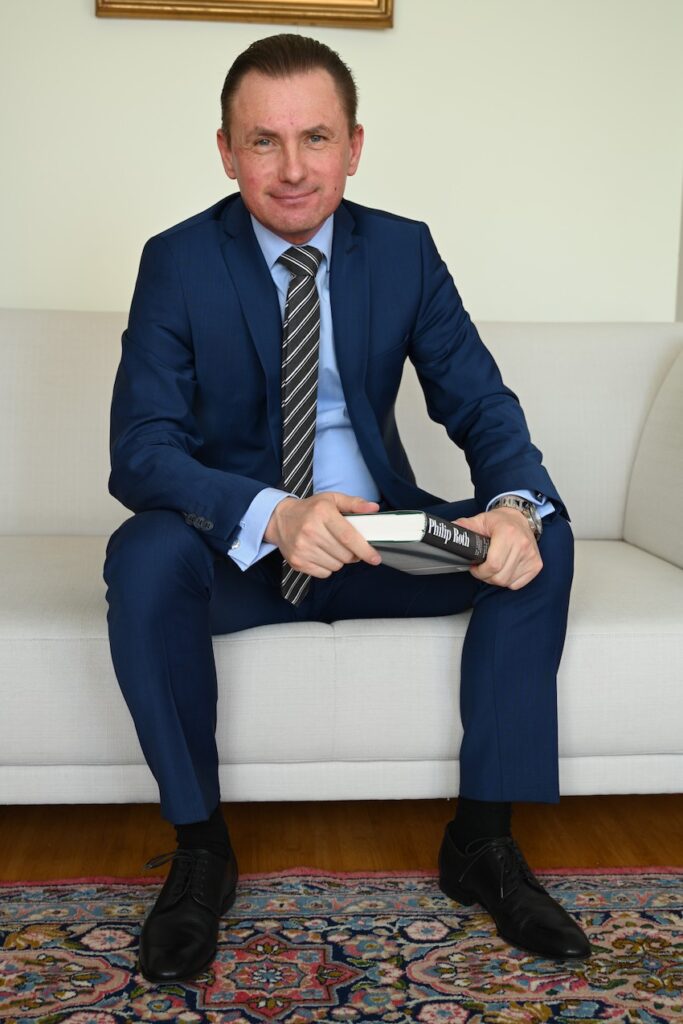
Being responsible for Slovenian development cooperation and humanitarian assistance, this revelation has downed upon me frequently in my current line of work. While we are successful in our national projects addressing poverty eradication, inequality reduction and sustainable development in the partner countries of the Western Balkans, the European Neighbourhood and Sub-Saharan Africa, one needs to acknowledge the realistic limitations of the tools we have at hand.
In my view, these goals cannot be achieved without a solid financial offer to our partner countries. To that end, the EU has launched a Joint Communication to promote and implement the Global Gateway, a strategy that aims to mobilise investments of up to 300 billion EUR by 2027 on fair and favourable terms that do not create unsustainable debt and dependency.
In this way, the investment gap worldwide should narrow. In effect, the EU aims to secure a fair and just transition to a cleaner and more resilient global economy. It is high time for the EU to come up with a comprehensive and strategic approach, offering a better alternative to the existing initiatives of other major global players.
How can higher conscious empowerment uphold, foster, and promote protection as well as the rule of law and human rights?
– Human rights and the rule of law are prerequisites for social resilience. By implementing human rights, we can successfully overcome the fragility of societies and poverty. They are a guarantee of peace and conflict prevention in the world. Preventing human rights violations and violent conflicts save lives and resources and is therefore also cost-effective. Along with peace, security and development, human rights a cornerstone for the functioning of the international community.
The more empowered an individual is in terms of status and rights, the greater the state’s responsibility to provide the conditions for their exercise. At the same time, the state also benefits more from empowered individuals who are socially responsible and contribute to its development and prosperity.
The key question we face is whether the concept of empowerment can be individually integrated into the social context. Practical experience shows that this is not always possible. In every society, therefore, circumstances must mature to such an extent that empowerment can be successful. That is why diplomatic efforts are also focused on achieving this goal.
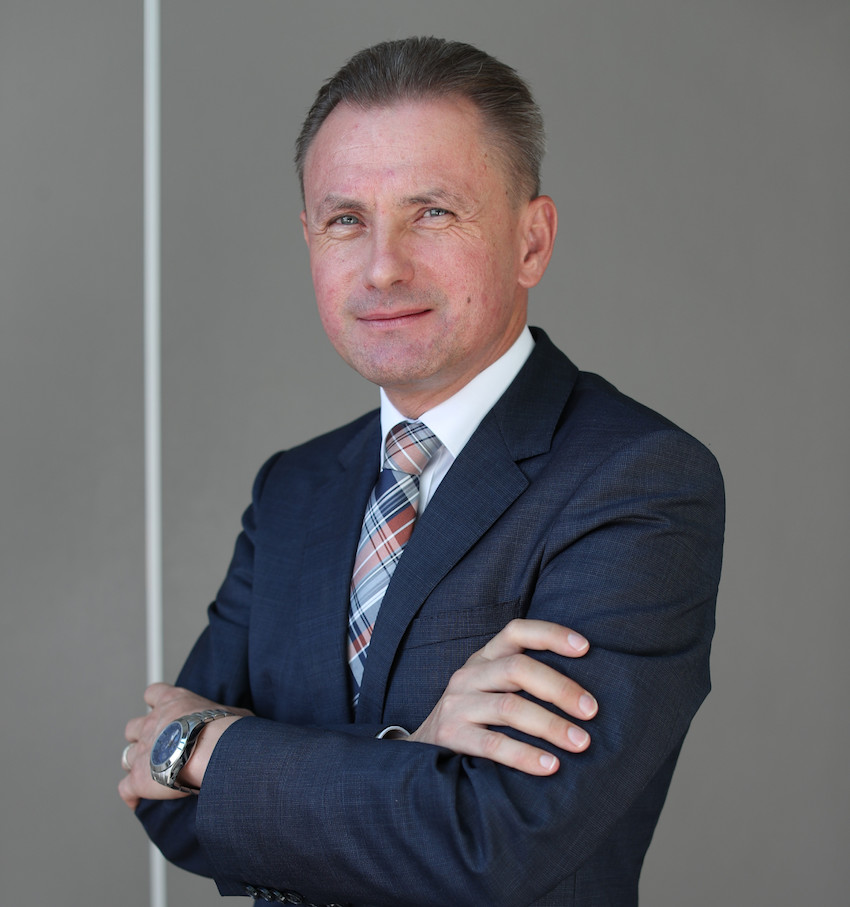
Is Pan-European cooperation with NATO and like-minded stakeholders, connecting reliable partners to construct and form critical infrastructure and ensure security of supply in the face of current global challenges (pandemic, climate change, preventing irregular migration, working together against new cyber threats and hybrid attacks) even possible in this divided and turbulent world?
– The war in Ukraine is a clear reminder of the importance of NATO and guarantees it provides in terms of stability and security, also when it comes to our values and the functioning of the rules-based international order. Furthermore, NATO is also indispensable when it comes to developing strategic infrastructure. Therefore, it is not a question whether cooperation with NATO and like-minded stakeholders is possible but whether could we afford not to have it. And indeed, we can not afford not having this cooperation.
Diplomatic insight reveals that the true value of the national economy is predominantly measured by the level of development of infrastructure and its connectivity with the neighbouring countries, the region and the world. One can assess the progress of a given capital by the number of cranes per square kilometre and progress of this country by the size and scope of high-tech infrastructure projects financed from the state budget.
We have been bluntly reminded of the importance of the strategic infrastructure also by the pandemic, which exposed completely our critical dependence from third country suppliers.
Constructive cooperation in the face of current global challenges is possible and needed. The ongoing EU efforts to secure diversification of energy sources have resulted in tripartite partnership among the EU, Egypt and Israel in supplying Israel’s gas via Egypt to the EU. On the other hand it is the EU which heavily focuses on providing food security in Egypt. This kind of mutually beneficial approach could be applied in the context of cooperation with other countries in the region as well.

Mr. Robert Kokalj has 27 years of professional work experience as a Slovenian diplomat, serving in bilateral and multilateral missions both in and outside the EU. He has maintained diplomatic relations at a senior level while exercising leading managerial positions in the internal and external national foreign service since 2005.
As Head of Department for Economic Diplomacy and later as Director General for Economic and Public Diplomacy at the Ministry of Foreign Affairs, he contributed to the enhancement of bilateral economic and commercial relations with partner countries. He led negotiation teams and co-chaired sessions of Joint Economic Commissions. He also dealt extensively with the energy dossier.
Between 2017 and 2021 he served as Ambassador of Slovenia to Hungary. During his regional accreditation as Ambassador of Slovenia to Egypt, Jordan and GCC countries between 2010 and 2014 he extensively cooperated also with the League of Arab States. Earlier in his career, he served as Chargé d’Affaires a.i. at the Slovenian Embassy in the Slovak Republic.
With his team, he contributed meaningfully to the achievements of the Slovenian Presidency to the Council of the EU both in 2008 and 2021. He was a member of the Task Force of the Slovenian Chairmanship in Office of the OSCE in 2005 and has dealt with the OECD affairs at various stages in his career.
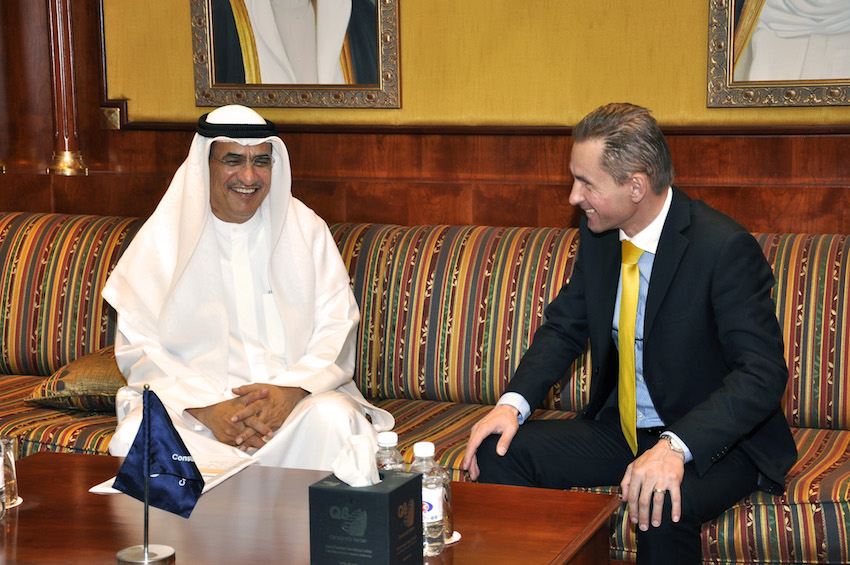
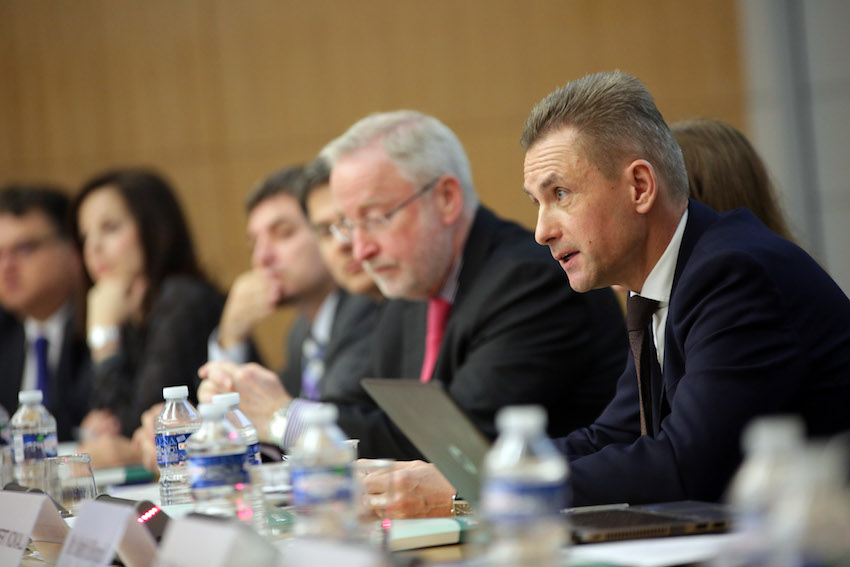
Mr. Kokalj also served as National Coordinator for Cooperation of Central and Eastern European Countries and China (“16+1 Initiative”) and ASEM Senior Official of Slovenia.
He is currently Head of the Department for Development Cooperation and Humanitarian Assistance at the Ministry of Foreign Affairs. He studied in Maribor, Brussels, Prague and Budapest and has a Ph.D. in Economics.
“Greatness is earned, never given.”

